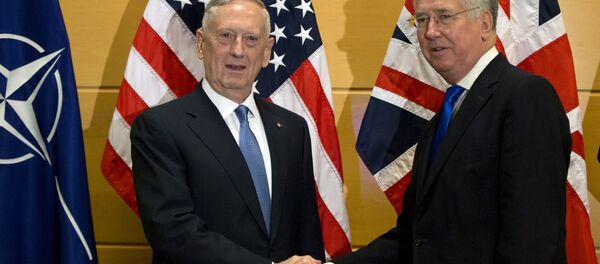In its latest assessment of the UK military capability, the military think tank, the Royal United Services Institute (RUSI), says that the next British Government may have to consider bringing forward a new strategic defense review, currently slated for 2020.
Does the UK need another #Defence Review? #SDSR New @RUSI_org briefing paper by @MChalmers_RUSI weighs up options https://t.co/z2v21GPc1x pic.twitter.com/LUNGQ0KG6Y
— RUSI (@RUSI_org) 12 May 2017
RUSI warned that "ambitious plans for future military capability announced in the 2015 SDSR exceeded the limited resources that were made available for their fulfilment."
"The forthcoming Brexit negotiations — in relation to both economic and security relationships with the EU — could still have a profound effect on the options that are available for the UK's defense and security policies," the report said.
Time to let MoD decide "most effective & efficient balance between service, civilian & contractor personnel"? #SDSR https://t.co/XfDzkWOeCj
— Martin at Prospect (@MartinProspect) May 12, 2017
"When the last Strategic Defense and Security Review (SDSR) was published in November 2015, it was assumed that the next one would not take place until 2020. The new government that takes office after the UK general election on 8 June will have to decide whether to stick to this timetable. One plausible outcome is that the launch of the next SDSR is brought forward to late 2018, by which time the implications of Brexit — economic and strategic — should have become much clearer," RUSI said.
Brexit Uncertainty
UK Prime Minister Theresa May has formally notified the European Council that Britain is leaving the EU — following the referendum, June 23, 2016 — but has called an election in the hope of gaining a greater working majority in the House of Commons to gain her negotiating advantage in Brussels.
However, RUSI argues that — for Britain to maintain its obligation to spend two percent of GDP on defense, required by NATO — a "mini-review" of defense commitments during 2017 is therefore a distinct possibility, helping to keep defense finances on a relatively stable footing until the government is ready to hold a new Spending Review, taking account of the shape of the Brexit deal.
"At a time of increased uncertainty about what Brexit means for the UK's international role, the dual commitments on defense and aid will be used to make the case that 'Global Britain' is much more than just a slogan. Yet this probably also means that, until the medium-term fiscal impact of Brexit has been clarified, current plans for defense spending are unlikely to change. No major new injection of cash into the defense budget, at least for the next two years, seems to be on the cards," RUSI said.



